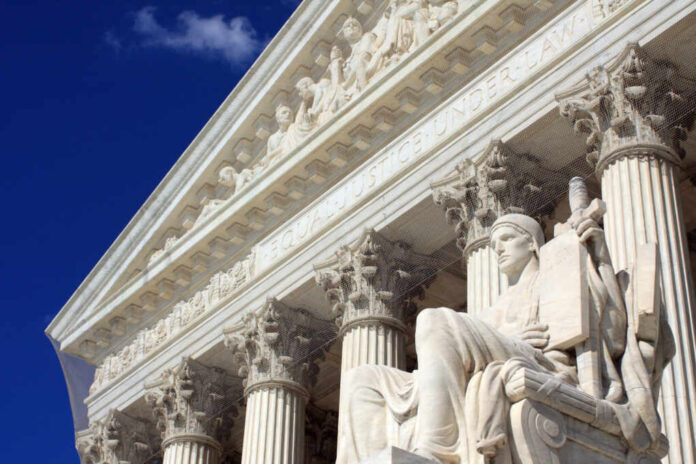
The Supreme Court is taking on a case regarding the Biden Administration’s censorship of social media websites by pushing big tech companies to remove or disincentivize posts labeled as “misinformation.”
I will be at the Supreme Court tomorrow as my co-plaintiffs and I ask the Court to uphold this injunction against government censorship. https://t.co/fPXEdMMDfo
— Aaron Kheriaty (@AaronKheriatyMD) March 17, 2024
Murthy v. Missouri claims that the government’s involvement with social media companies’ content moderation, most notably censoring scientific debate and criticism of government policies during the COVID-19 pandemic, violates Americans’ First Amendment rights. The court heard arguments on Monday.
The case was originally brought up by Sen. Eric Schmitt, (R-MI) who filed the case while he was the Missouri Attorney General.
“At the core of the lawsuit is the idea that the federal government can’t outsource censorship to social media companies to trample on Americans’ speech, which is exactly what they were doing,” Schmitt said in a video he put out Sunday.
“At the behest of some of the highest ranking government officials in the country, the biggest social media companies in the world censored speech on topics like the [Wuhan] lab leak theory, the Hunter Biden laptop story, the origins of COVID, the efficacy of masks, and much, much more.
The discovery that came out in that case is shocking, to say the least. It shows that it wasn’t just one or two officials that were working with social media companies to censor American voices.
It was a leviathan of officials and agencies, more appropriately dubbed ‘a vast censorship enterprise.’ This case cuts to the very core of what it means to be an American.”
A Louisiana-based federal judge agreed last year, ruling that the government could not contact social media companies regarding “any manner the removal, deletion, suppression, or reduction” of content containing “protected free speech.”
Some criticized the decision as too broad, and the case came to a three-judge panel on the 5th U.S. Circuit Court of Appeals, who ruled that the government cannot “coerce” social media companies to remove posts they disagree with.
The court found that the White House, Cybersecurity and Infrastructure Security Agency, FBI and Centers for Disease Control and Prevention were all guilty of coercing social media companies to moderate content in the administration’s favor.
Those who support the Biden Administration’s actions claim that it did not coerce social media companies and that its “persuasion” of tech companies to apply censorship that the government itself cannot is perfectly acceptable.
“Of course, the government cannot punish people for expressing different views, and it cannot accomplish the same thing indirectly by threatening to punish private actors for disseminating those views,” the Justice Department wrote in its brief to the Supreme Court.
“But so long as the government seeks to inform and persuade rather than to compel, its speech poses no First Amendment concern — even if government officials state their views in strong terms, and even if private actors change their speech or conduct in response,” the brief continued.
If the Supreme Court allows the government to continue with its current influence over social media, this blatant opening for censorship could become an even greater cause for concern.
While coercion is still not allowed, there’s no indication that the government can’t reward its cooperators, a move that could potentially encourage censorship even more.
For now, America awaits the Supreme Court’s decision, expected in June of 2024.














